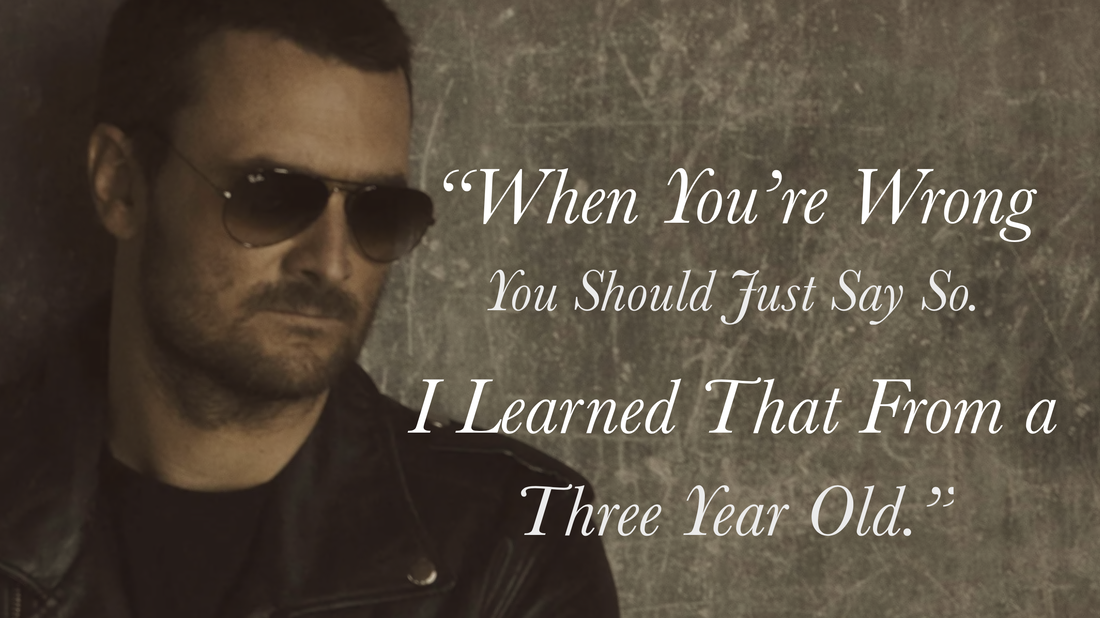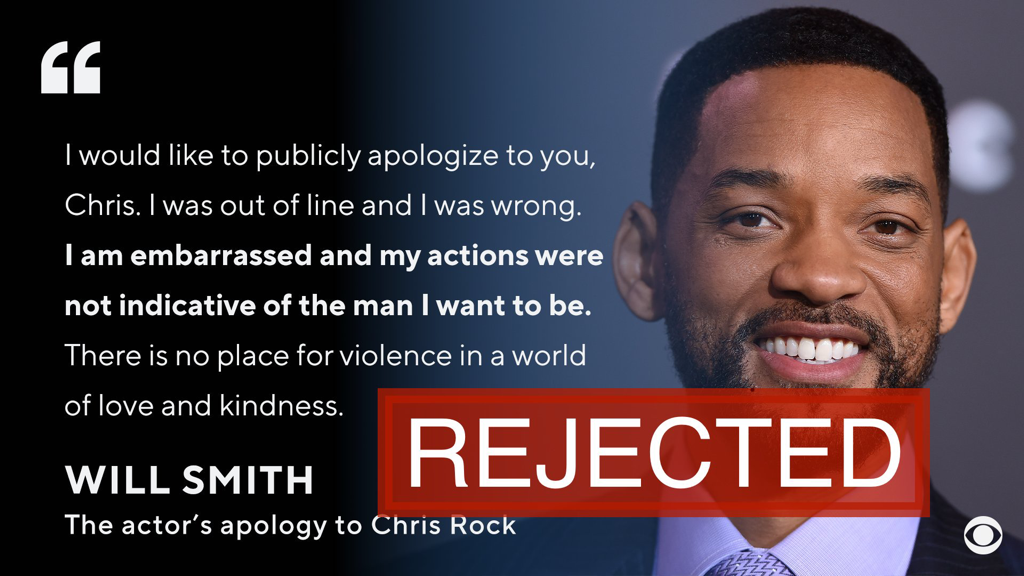|
In our prior article on apologizing, we discussed if and when you should apologize. If you haven’t read that, just scroll down. Check it out first. If you’re rebellious or just like to drive in reverse, here’s a quick summary… Only apologize for a behavior or action of yours that is not in line with your own moral standards. DO NOT apologize based solely on another person’s reaction or for personal gain. The first article will make better sense of that, so don’t try to sneak any questions in the comments. In part three we will discuss how to handle situations in which you are ‘sorry’ for hurting the other person’s emotion, tho, you do not believe you did something wrong or are confused by the situation. In short, never just throw out a ‘sorry’ like a Hail Mary at the end of a Football game. Sooner or later, the press will be asking about the rest of your Playbook. Simple enough…for now? Perfect. Now, what makes a good apology? Rule #1 A good apology starts without an expectation of how you’d like the other party to react. This is not a sales job. Forgiveness is their option, not yours. Rule #2 Keep it short and specific to the behavior or action that was against your moral standards. Anything beyond is self-indulgence or risks entangling the apology with other issues. Rule #3 Resist the urge to justify. This is where apologies often go haywire. You’re not getting the desired reaction, so you begin throwing things out there to fill the silence and now you’re in no man’s land. Keep the improv skills to open mic. Rule #4 Don’t make it bigger or smaller than it is. Got caught looking at the hot guy/girl at the pool? A ‘my bad’ might suffice. No need to waste your partner’s time going on about how “they’re perfect the way they are” or throwing out fun facts on the origin of the bikini’s name. (It’ll kill at your next party, tho) Different story if you’ve been caught having an affair. I think you’d agree that a ‘my bad’ is plain insulting. If you’re in this situation, just call me. We have more work to do than an apology. Rule #5 Only make promises you are able to reasonably keep. If this is a recurring issue, do not state it will never happen again. Instead, let the person know that this is something you will continue to work on and what they ‘can expect. If there is a specific step you will be taking to rectify the situation going forward, state it, then follow through. If not, use the ‘best I can do’ approach below. Bonus Tips
Moving on…
Got the above memorized? If not, just watch every Celebrity or Influencer apology and do the opposite. (Will Smith, let it go…your ‘slap’ is old news. We’ve got Kanye wearing black masks praising a certain German dictator…so just release Bad Boys 4 and get on with it.) In the real world, let’s keep apologies short and simple. The truth is, often the best basis for an apology is an “I f*cked up.” (“I screwed up” or “I messed up” will suffice…) That’s something we can all relate to and is a great starting point. This leads to solid apologies such as… “I’m sorry for booking a client during our planned date night. I screwed up. Going forward I will block off our date nights in my work calendar the moment we plan it.” or “I’m sorry for cutting you off and walking away in frustration while you were in the middle of sharing your feelings last night. I acted selfishly by not wanting to confront the issue. Confrontation can be very difficult at times and am something I am actively working on. The best I can do is to acknowledge when I avoid it and be more vocal how I’d prefer to be approached when a situation arises.” The former is simple and to the point. Mistake is yours, so own it. The second is a bit more complex because there is an underlying issue as to why the behavior is occurring. However, that underlying issue is to be discussed at a later point. This is why I prefer the ‘best I can do’ approach. The reason being is that the underlying issue may involve how the other person reacts to your responses, personal issues unrelated to that person, or a lot of unknowns that need deeper discussion. Handle the apology first. Give the person space to respond or not. Then at a later time ask to discuss the underlying issues associated. Space is healthy. Entangling an apology with more complex, emotional issues in that relationship is akin to lighting a match at the gas station. I think that about sums it up for this post. Now go practice some of your own apologies and see what you come up with. Till next time…enjoy!  Apologizing… The art of saying we’re sorry for the mistakes we’ve made and the wrongs we create. Poetic...I know. Hold that thought, tho, as we’ll be coming back to that line. First, let’s answer the question- “Can you ever apologize too much?” Well, yes. Actually, hell yes. In fact, it’s extremely common. It’s often one of the most lopsided behaviors between two individuals in a meaningful relationship. Not just intimate, either. How often do you apologize to your child? Your boss? Is it split 50/50 between you and your spouse? Highly unlikely. While it’d be nice to have an even split, all relationships have a power dynamic in which apologizing is part of. I’ll even let you in on a little foreshadowing. Within this dynamic it can be a point of great strength, weakness, and even manipulation. That’s because of one simple fact. We most often apologize because of how the other person reacts, not what we actually believe. Now, some of you might be thinking, “Jeff, isn’t that the whole damn point of saying sorry? Literally because we hurt the other person?” Well let me ask you this? Back in the good ole days of playground dodgeball, were you ‘really’ sorry for pelting that kid with a cheap shot who’s been a d*ck to you every day at lunch? Or did you think they deserved it? Either way, you likely apologized because the teacher told you to. (If you never behaved like this just change the ‘yous’ to ‘Jeff’…take comfort in being a better kid than I and relate it to something else in your childhood.) In this example we learn as children to apologize in order to keep the peace. On the flipside, the bully might get the principle’s office every now and then, but they ain’t saying sorry. Unless…it’s for their own benefit. Aka manipulation. Time to roll the clock forward to present day adulthood. If you are the apologizer, how often do you find yourself doing it to keep the peace? How many times do you say it without believing it?
If you are at the other end of the spectrum, why aren’t you apologizing? There’s very strong data that can predict who will fall into which category, so be real with yourself. Now, with an honest look in the mirror, are there ever instances you apologize for pure self-gain? To protect your reputation, earn a reward, or avoid a negative consequence? Press pause for a minute and think about this. Then proceed. Good? Let’s roll right into the golden question. The reason you’re here. When should we apologize? It’s simple. Apologize when you believe you have done something against your own moral code. Not predicated on any external prompt. When should we not apologize? You truly believe your behavior has not violated your own moral code. Be aware of internal justification…just saying. What should you do when someone is upset with and they are a person you care about or is in an authoritative position? A bit more nuanced. Try this. Ask open-ended questions from a place of sincere curiosity. Let’s wrap this up there and dive into the nuances, the consequences and more specific scenarios another day. Till then, remember this- Apologize for our actual mistakes, not the ones we (or let others) create. Told you to hold onto that quote from earlier. 😉 Jeffrey Allyn-Hanson “If you’re wrong you should just say so, I learned that from my three year old.” - Eric Church |
Jeff Hanson, Founder Archives
January 2024
Categories |
|
|





 RSS Feed
RSS Feed




